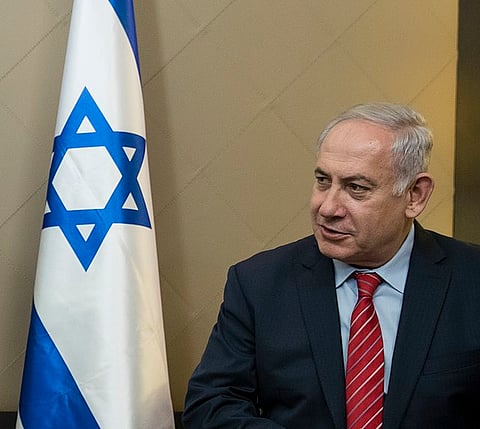

Court Reverses Decision After Security Briefings
The Jerusalem District Court postponed Prime Minister Benjamin Netanyahu’s corruption trial hearings on June 29, accepting his request for a delay based on "classified diplomatic and security grounds." The ruling, published by Netanyahu’s Likud party cited new arguments from the prime minister, Mossad chief, and military intelligence head, emphasizing the "national need" for Netanyahu to focus on post-conflict stability after Israel’s 12-day war with Iran. The reversal came just days after the same court rejected a similar request on June 28, highlighting the heightened security concerns following the ceasefire.
U.S. President Donald Trump intensified pressure on Israel’s judiciary, calling Netanyahu’s trial "INSANITY" and a "witch hunt" in Truth Social posts. He warned Washington would "not stand for this" given billions in annual U.S. aid to Israel, demanding immediate cancellation or a presidential pardon. Netanyahu publicly thanked Trump, tweeting: "Together, we will make the Middle East Great Again!". While Israeli prosecutors declined to comment, opposition leader Yair Lapid condemned Trump’s interference: "He should not intervene in a judicial trial in an independent country".
Netanyahu faces three criminal cases dating to 2019, including charges of bribery, fraud, and breach of trust. Specific allegations involve accepting $260,000 in luxury gifts (e.g., cigars, champagne) from billionaires for political favors, and negotiating favorable media coverage. The prime minister denies all charges, framing the trial as a left-wing plot to overthrow his "democratically elected government". Since 2020, Netanyahu has sought multiple postponements, coinciding with his government’s push for judicial reforms critics say weaken courts.
The delay follows Israel’s recent conflict with Iran, which ended in a June 24 ceasefire brokered by Trump. Trump claimed Netanyahu is actively negotiating with Hamas for a Gaza ceasefire and hostage deal, though neither side provided details, and prospects remain uncertain. Analysts note Netanyahu’s strengthened political position after the Iran strikes, which garnered 70% domestic support. However, Gaza hostilities persist, with seven soldiers killed in Khan Younis on June 25.